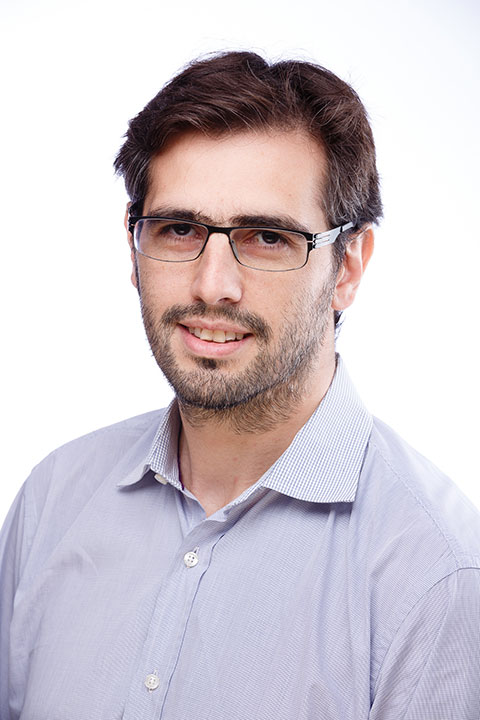Not All Those Who Wander are Lost: The Sami Hermez Story

Photo from NU-Q website.
Whether it is computer science, economics, public administration or participating in the Peace Corps program, Sami Hermez, the assistant professor in residence of anthropology at Northwestern University in Qatar, has done it all.
Hermez, who is Lebanese by origin, did not know what he wanted to do with his life until just a few years ago. In his last few years in high school, Hermez wanted to become a computer programmer because he wanted to make games.
“Turns out computer science is not about making games,” he said with a chuckle.
While pursuing a computer science degree as an undergraduate at Duke University in the United States, Hermez dreamt of obtaining a master’s degree in artificial intelligence.
“But in my junior year, I walked into my first artificial intelligence class and about halfway through, I walked out having no clue what was going on. That was the end of my dream,” he said.
The very same day, Hermez decided to double-major in economics and computer science. He chose economics because he thought it meant doing business and working on Wall Street. Although he said he applied to those jobs on Wall Street, he didn’t like economics, and so, wanted to do something else. Upon his friend’s suggestion to apply to the Peace Corps, a U.S. government agency that does development work around the world, Hermez was assigned as an English teacher in Russia.
While Hermez believes that joining the Peace Corps was a great personal experience, he also said that often times, people join developmental work because they want to feel better about themselves, rather than actually trying to provide assistance. He cautioned students to be mindful of these self-serving motives.
Hermez was also very critical about the role of the U.S. government in the Peace Corps.
“In the case of Peace Corps, it’s trying to show that America is doing very much for the world. And I took issue with that because I saw that America spends billions, if not more, on war and a minuscule amount on development and peace,” he said.
This experience in the Peace Corps influenced Hermez to participate in the public sector, where he said he thought he would be able to contribute towards a more constructive experience. He then pursued a master’s in public administration at New York University.
But soon, Hermez realized that he didn’t enjoy what he was doing, because he wasn’t taught to produce innovative ideas.
“Rather than challenging and critiquing what development is doing to the world, we were being sort of taught to do development as development is being currently done, without really giving much thought to larger critiques,” he said, adding that the program’s graduates were only “reproducing the status quo.”
At the same time, Hermez was introduced to the ideas of Edward Said, a Palestinian-American intellectual. Hermez was really motivated by Said’s notion of the public intellectual: an individual who produces new ideas and uses these ideas to influence the public and confront those in power. This notion, and the thought of being able to learn the socio-political situation of his own country, Lebanon, in a more long-term manner, attracted Hermez to anthropology. It became his passion and he decided to pursue it for his Ph.D.
“I felt that this was a discipline from which you can study the radical differences in others, things that are extremely different from you, and thinking about this difference in a way that might build solidarity rather than be a source of conflict,” he said. He said the idea of being “one” is a very totalitarian concept.
“Inevitably someone’s idea of one will win over others. And so for me, the idea of oneness can be very oppressive, so we need to accept differences as the basis of solidarity,” he added.
“Becoming a Professor also came partly due to Edward Said’s influence. Teaching students would give me a platform to relate my ideas, have them debated, and hopefully create an impact on the students,” Hermez said.
So he came to Qatar, which he felt was “close to home [Lebanon].” On his first visit to Education City, he said he felt like he was in “the set of Star Wars.”
“Because it was so massive and the national library is behind you and it looks kind of like a spaceship,” he explained.
Hermez has been teaching at NU-Q since January 2015. He said he enjoys the creativity it affords.
“I am to some extent the master of my own work,” he said, adding that he now has the ability to be creative and produce whatever comes to mind. He also appreciates student participation at NU-Q. “Students here are really engaged and that’s something you don’t get that often,” he said.
After oscillating between various career paths, Hermez has finally found his calling. “It took me many, many years, but I finally found something I love,” he said. He explained that sometimes, it’s good to not have found your passion at age 18, 20, or even 22, because people grow with every different experience they encounter.
That’s why he said he sometimes wears a shirt that says, “Not all those who wander are lost.”
Editor’s Note: A previous version of this story stated, “Hermez was also very critical about the role America played in the Peace Corps.” This has since been corrected to highlight that he was critical about the role the U.S government played in the Peace Corps.
